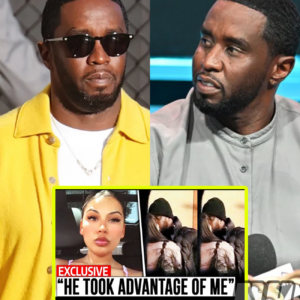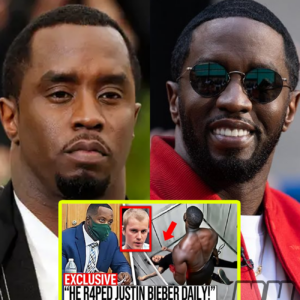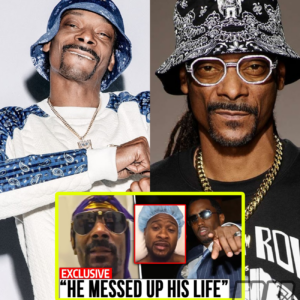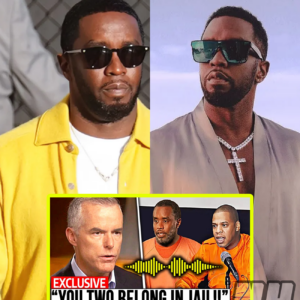The Dark Underbelly of the Music Industry: Sean ‘Diddy’ Combs and Jay-Z
Introduction

The music industry, often perceived as a glamorous and artistic realm, has a hidden side fraught with dark secrets and unethical practices. Recently, Jaguar Wright, a former member of the neo-soul collective and long-time industry insider, has made explosive claims about two of its most iconic figures: Sean ‘Diddy’ Combs and Jay-Z. These allegations, if true, paint a grim picture of manipulation, control, and exploitation in the pursuit of power and success.
Sean ‘Diddy’ Combs: Manipulation and Control
Jaguar Wright’s allegations against Sean ‘Diddy’ Combs, also known as Puff Daddy, are particularly severe. Wright accuses Diddy of being a manipulative narcissist who uses his power in the music industry to control and exploit artists. She claims that Diddy’s methods are not just unethical but criminal, alleging that he has been involved in sex trafficking and other illegal activities.
One of the most disturbing claims Wright makes is that Diddy, influenced by his mentor Clyde Davis, has a penchant for power and control stemming from his own victimization. She narrates incidents where Diddy’s actions led to tragic outcomes, such as the stampede at Howard University that resulted in the death of Father MC’s partner due to inadequate security measures at one of Diddy’s infamous parties.
The Mentorship and Rise to Power
Wright details Diddy’s rise from an intern at Uptown Records to the head of Bad Boy Records, highlighting the ruthless ambition and guidance from industry moguls like Clyde Davis. Diddy’s determination to succeed, according to Wright, involved suppressing true talent and creating dependent stars who could not function without his influence. This approach ensured that he maintained total control over his artists, preventing them from achieving independence.
The Dark Secrets: Allegations of Criminal Activities
Wright’s allegations extend to criminal activities, including the claim that Diddy’s manipulation of artists often involved underhanded tactics. She mentions an incident where Diddy’s speech to his interns at Bad Boy Records emphasized the objective to “kill talent” and control less talented individuals, making them stars only through his influence. This, she argues, allowed Diddy to run his label and his artists into the ground while making immense profits.
Moreover, Wright suggests that Diddy’s parties, infamous for their debauchery, were not just about music and entertainment but involved darker activities like drug use and sex. She recounts an incident involving Diddy’s bodyguard being arrested for drug possession, implying a connection between Diddy’s operations and illicit activities.
Kim Porter’s Death: A Suspicious Tragedy
One of the most shocking claims Wright makes is regarding the death of Kim Porter, Diddy’s ex-girlfriend. Porter died of pneumonia, but Wright asserts that the initial coroner’s report suggested homicide, with toxins found in her body indicating poisoning. Wright points out that there are poisons that mimic symptoms of heart attacks and pneumonia, suggesting foul play in Porter’s death. She warns others close to Diddy to be cautious, implying a pattern of dangerous behavior.
Jay-Z: Unethical Practices and Dark Secrets
Jaguar Wright’s accusations do not spare Jay-Z, another towering figure in the music industry. She claims that Jay-Z’s rise to prominence involved unethical practices, including relationships with underage girls. Wright’s claims are corroborated by Reggie Wright, who accuses Jay-Z of being involved with minors during the 1990s, a time when such behavior was more commonly overlooked.
The Consequences of Power and Success
The allegations against both Diddy and Jay-Z suggest a pattern of using power and influence to exploit others. Wright describes how Diddy’s approach to his artists and personal relationships reflects a deep-seated need for control, often treating his women even worse than his artists. This pattern of behavior, Wright argues, is emblematic of a broader culture of exploitation in the music industry, where the pursuit of success often comes at the cost of ethical considerations.
The Need for Accountability and Justice
Jaguar Wright’s revelations call for a serious reevaluation of the music industry and the behavior of its most powerful figures. She urges those who have been victimized or have knowledge of these activities to come forward, hoping for accountability and justice. Wright’s claims about Diddy and Jay-Z underscore the need for greater scrutiny and reform in an industry that has long been plagued by rumors of misconduct.
Conclusion
The music industry, while a beacon of creativity and talent, harbors a darker side where power, manipulation, and exploitation often go unchecked. Jaguar Wright’s allegations against Sean ‘Diddy’ Combs and Jay-Z bring to light the need for transparency, accountability, and a cultural shift that prioritizes ethical behavior over ruthless ambition. As these claims are investigated and more individuals come forward, the hope is that the industry can transform into a safer and more equitable space for all its participants.
News
(VIDEO) Celebs that P Diddy EXPLOITED for Cash
P Diddy and the Dark Side of the Entertainment Industry The entertainment industry is no stranger to scandal and controversy, but the recent revelations surrounding P Diddy (Sean Combs) have brought to light a web of disturbing allegations and connections…
(VIDEO) Kevin Hart IN TEARS After New Leaks EXPOSE Him At Diddy’s After Parties!!
Kevin Hart: A Complex Journey Through Fame, Scandal, and Personal Growth Kevin Hart, the renowned comedian and actor, has led a life marked by both incredible professional success and deeply personal scandals. His journey from selling sneakers to becoming one…
(VIDEO) “He Ruined My Life” Former Diddy Employees TEAM UP To EXPOSE Him!
The Dark Side of Fame: Allegations Against Diddy and the Revelations from Former Employees The music industry is often glamorized for its glitz and glamour, but behind the scenes, it can harbor dark secrets and troubling behavior. Recently, Sean “Diddy”…
(VIDEO) “He’s Why Justin Bieber Is DEPRESSED!” Undercover FBI Agent EXPOSES Diddy
The Tumultuous History of Snoop Dogg, P. Diddy, and the East Coast-West Coast Rivalry Hip-hop history is fraught with feuds, friendships, and ever-changing alliances. Central to many of these stories are iconic figures such as Snoop Dogg and P. Diddy…
(VIDEO) “Diddy Did Usher Dirty Forever” Snoop Dogg EXPOSES Sean Combs!
The Tumultuous History of Snoop Dogg, P. Diddy, and the East Coast-West Coast Rivalry Hip-hop history is fraught with feuds, friendships, and ever-changing alliances. Central to many of these stories are iconic figures such as Snoop Dogg and P. Diddy…
(VIDEO) Undercover CIA Agent EXPOSES Diddy & Jay Z!
The Fall of P. Diddy: A Dismantling of Credibility and the Unfolding Legal Crisis Introduction In recent years, Sean “P. Diddy” Combs has found himself at the epicenter of numerous controversies and legal battles that have significantly tarnished his once-polished…
End of content
No more pages to load











